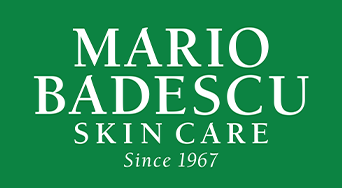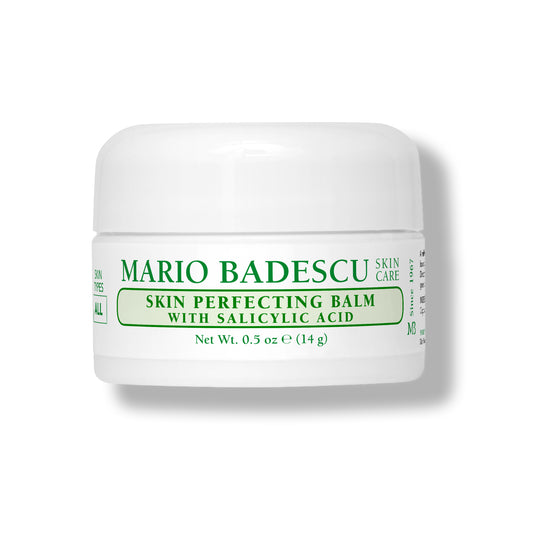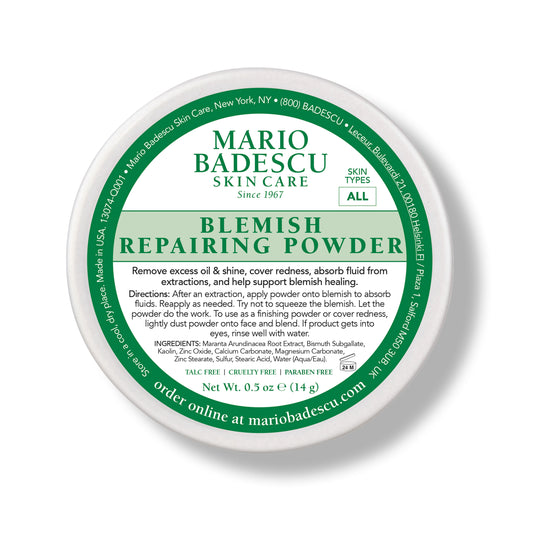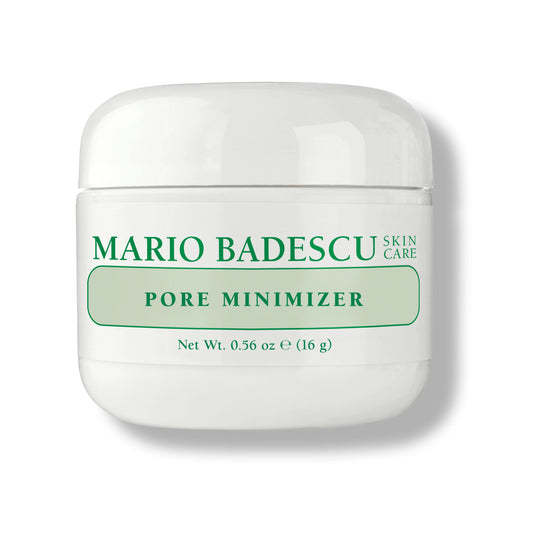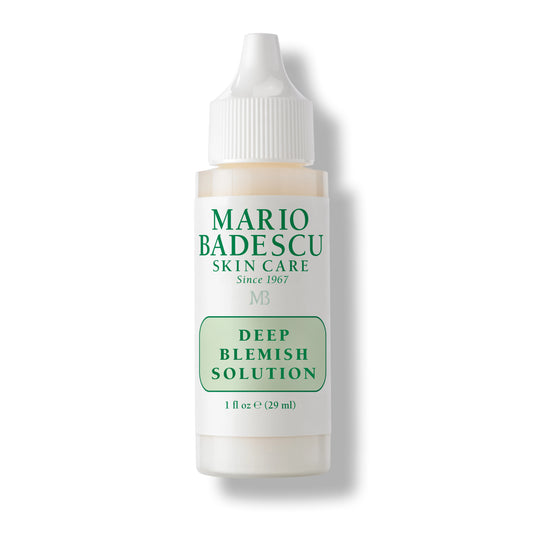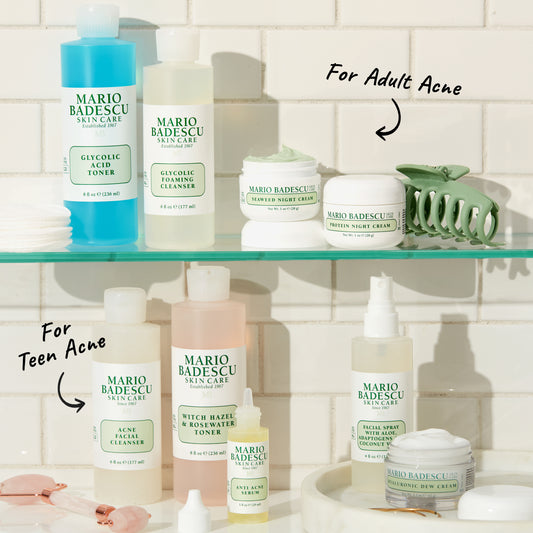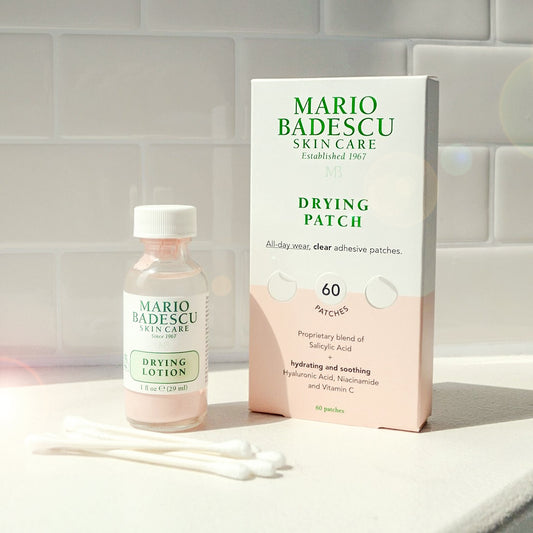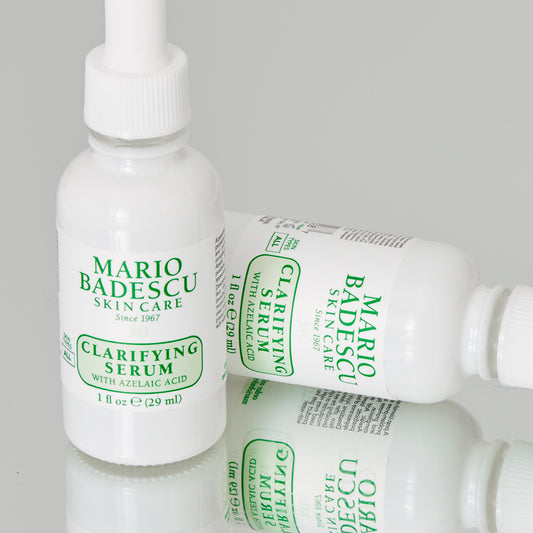Dealing with acne-prone skin can be frustrating and challenging, with acne-prone skin often being sensitive, irritable, and prone to irritation – many acne-focused skincare products also tend to be harsh on skin – causing further irritation and discomfort. However, with the right products and skincare routine, you can achieve a calm and clear complexion.
What is Acne Prone Skin?
Acne-prone skin is characterized by an overproduction of sebum, clogged pores, and the presence of acne-causing bacteria. It is essential to approach skincare with a focus on gentle yet effective products that reduce inflammation, unclog pores, and promote healing.
What Is a Good Skincare Routine to Calm Acne-Prone Skin?

When caring for acne-prone skin pay attention to these: Cleanse, tone & balance, treat, moisturize and soothe!
Step 1: Cleanse Skin with an Acne Facial Cleanser
Start your routine by using our Acne Facial Cleanser. This gentle yet powerful cleanser is formulated with salicylic acid and soothing botanicals to effectively cleanse the skin without stripping it of essential moisture.
To use: Wet your face with warm water, apply a small amount of cleanser, and massage it in circular motions. Rinse thoroughly and pat dry.
Step 2: Tone Acne-Prone Skin with Special Cucumber Lotion
After cleansing skin, acne-prone skin can benefit from using a toner to clarify and balance skin. For irritated acne-prone skin try our Special Cucumber Lotion Toner. This toner is enriched with cucumber extract – an ingredient known to help soothe and calm irritated skin. The formula also contains sulfur to help purify the skin, control excess oil, and minimize breakouts making it great for acne-prone skin.
To use: Moisten a cotton pad with the toner and gently swipe it over your face and neck, avoiding the eye area. Allow it to dry naturally.
Use a Spot Treatment for Blemishes and Breakouts
If you have specific patches or instances of acne and breakouts on your skin, now is the time to target these individual blemishes. You can choose any spot treatment, for this process – we recommend our Drying Lotion, Drying Cream, or Buffering Lotion. These specialized products are formulated to help draw impurities away from the skin and reduce the size of acne and breakouts on the skin.
To use: Apply a small amount directly to the affected area using a clean fingertip or a cotton swab. Allow it to dry before proceeding to the next step.
Top tip: For giving care to blemishes and breakouts during the day – try our Drying Patches for Acne-Prone Skin. These hydrocolloid patches help to draw out moisture from whiteheads and reduce their appearance. Each patch features a combination of blemish reducing ingredients including salicylic acid and tea tree.
Use a Serum and Moisturizer for Acne-Prone Skin
Even if your skin is prone to acne – it is important to care for and moisturize skin. On the serum front try our Anti-Acne Serum an oil-free, gel-based facial serum which helps to clarify skin and reduce facial congestion by cleansing pores. On the moisturizer side finish off with our lightweight oil-free moisturizer (also available with SPF) or our Control Moisturizer for Oily Skin
How to use: Apply facial serum on acne-prone areas and follow by pressing a pea-sized amount of moisturizer over skin.
Face Masks for Acne-Prone Skin
Treating with Drying Mask for Acne-Prone Skin:
For skin that is especially acne-prone and/or has visible breakouts and blemishes on the skin — once or twice a week, incorporate our Drying Mask into your routine. This mask contains sulfur, kaolin clay, and calamine to absorb excess oil, purify the pores, and calm redness.
How to use: Apply a thin layer of the mask to the entire face, avoiding the eye area. Allow it to dry for 15-20 minutes, then rinse thoroughly with warm water and pat dry.
Calming with Healing and Soothing Mask:
To moisturize your acne-prone skin without causing further breakouts try our Healing and Soothing Mask. Designed to help draw out oils and impurities from the skin whilst also helping to balance and moisturize – it is specifically designed for oily and troubled skin. Key ingredients include Soothing Oatmeal and Allantoin, Purifying Kaolin Clay and Oil-absorbent Zinc Oxide.
How to use: Apply a generous layer to your face and neck, leave it on for 20 minutes, then rinse off with lukewarm water and pat dry.
Sunscreen and Acne-Prone Skin
Many skincare products formulated for acne-prone skin and those with acne often contain ingredients like AHA’s (think Salicylic Acid) and BHA’s (Glycolic Acid) which help to break down dead skin cells – but as a result, they can also make skin more sensitive to the sun (also known as photo-sensitivity). As such it is important to wear sunscreen daily to protect skin from the sun. Try our Mineral Sunscreen with SPF 30.
Why would I use Mario Badecsu’s Drying collection to calm acne-prone skin?
Our “drying” products (like our famed Drying Lotion and our accompanying Drying Cream and Drying Mask) may sound counterintuitive for calming acne-prone skin, as the term "drying" can evoke thoughts of further dehydration and irritation. However, it is important to clarify that these products are specifically formulated to combat acne and promote a balanced complexion without excessively drying out the skin.
Our “drying” collection is powered by two main ingredients: Sulfur and Zinc Oxide.
Sulfur's antimicrobial and anti-inflammatory properties can help to fight acne-causing bacteria, regulate sebum production, and gently exfoliate to unclog pores, whereas Zinc oxide is known for its ability to soothe and protects the skin, reducing redness and acting as a barrier against environmental pollutants.
Why You Should Avoid Abrasive Cleansers and Physical Exfoliants on Acne-Prone Skin
While exfoliation is important for removing dead skin cells and promoting cell turnover, using abrasive cleansers and physical exfoliants can cause irritation and spread acne-causing bacteria on the skin. These harsh products can aggravate the skin, leading to increased inflammation and potential acne scarring. Instead, opt for chemical exfoliants like salicylic acid or glycolic acid, which help to break down dead skin cells and are gentler and more effective for acne-prone skin.
